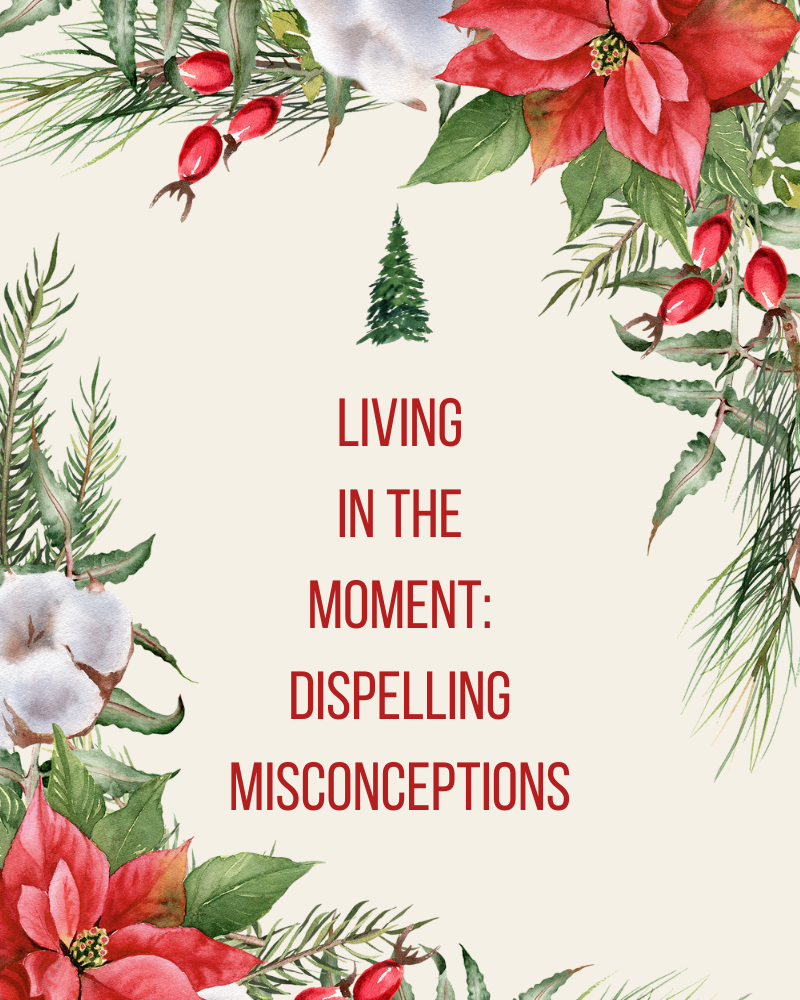This month we’ll be taking a closer look at “living in the moment”. We’ll touch on mindfulness and meditation but there are more parts to being present than just those. This is a great time of year to think about this topic as we are likely to be spending more time than usual with our friends and family over the holiday period. Being present with them is a wonderful gift to them and to yourself.

Living in the here and now has a lot of benefits. Taking a moment to pause and really appreciate your current reality can be an incredibly calming and enlightening experience. This has been used as a spiritual practice for thousands of years to raise self-awareness. It’s a powerful and natural stress reliever. Being mindful of the present moment has been proven to reduce high blood pressure and improve cardiovascular health.
Even with those significant benefits, many people people still struggle with being present. They spend more time looking backward and/or forward. That’s because there are a few misconceptions out there that can make it hard to stay focused on the here and now. Let’s take a look at three of the most common myths about living in the moment.
Being Present Isn’t About Being Impulsive
As your environment changes around you, the present moment changes with it. This can make some people think that living in the present means shifting from one thing to the next. But that’s not the case at all.
Embracing the present doesn’t mean going with the flow without a second thought. You take it all in. Let it happen. Engage your senses and pay attention to the moment. You’re conscious and mindful of your present state and the environment around you.
This doesn’t mean you have to take action.
Embracing the present doesn’t mean changing to be someone else. You don’t have to act on a whim, copying the behaviours of the people around you. Rather, you observe and understand what it all means for you, if anything. If the environment warrants action at that point, then you are taking it mindfully, not impulsively.
Being Present Isn’t Selfish
This is not a self-serving practice. You aren’t “doing” or “not doing” anything to serve yourself. You are simply allowing the present moment to include you. It’s all about being in the moment.
In the toughest of times, you can take a moment to appreciate the simple fact that you’re still alive. Each breath is a reminder that you can still make a difference in this world. Instead of focusing on the problems, take a step back and recognise the power of being alive. This gratitude can help you cultivate a more generous spirit and a less selfish attitude.
Being Present Isn’t about Laziness
Being present doesn’t mean neglecting your responsibilities. You shouldn’t use it as an excuse for not taking action. Take your responsibilities seriously. You have obligations that you must meet to ensure your home and family are taken care of. Spending time in the present moment doesn’t mean lazily shirking those responsibilities.
Living in the moment doesn’t mean recklessly ignoring the future or living an irresponsible life. It simply means taking the time to be mindful and aware of the present and savoring it for what it is. By appreciating the here and now, you can reduce stress, increase happiness, and get to know yourself better.
